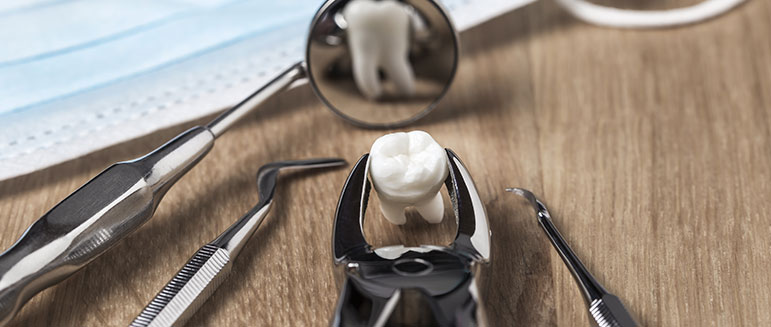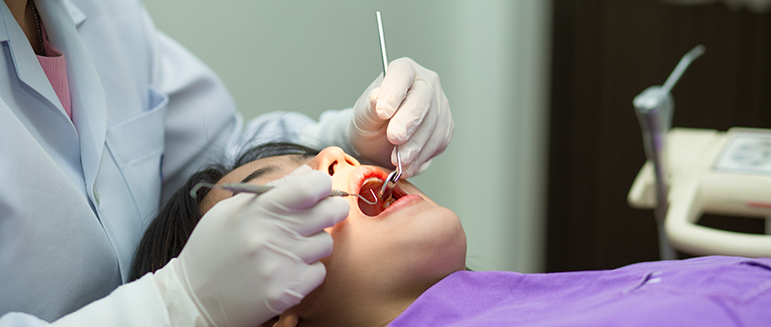Our oral and maxillofacial surgeons provide exceptional quality of care through their vast surgical expertise, unparalleled understanding of aesthetics and function and advanced training in Anaesthesia.
What does an Oral and Maxillofacial Surgeon do?
- They evaluate and formulate a treatment course and accordingly places dental implants to replace the missing teeth
- Surgically reconstruct inadequate bone structure in the jaw area
- Treat injuries to the face, jaws, teeth and mouth
- Treat head and neck trauma
- Diagnose and treat facial pain, oral cancer and other diseases in the maxillofacial region
- Perform corrective jaw surgery for patients with cleft lip and palate, and other congenital defects
- Diagnosis and surgical treatment of sleep apnea
- Perform Temporomandibular joint surgery (TMJ) for correcting malfunctions of the joint and treating TMJ-induced facial pain
- Perform facial cosmetic procedures to enhance facial appearance and function
- Extraction
Extraction

Tooth extraction or dental extraction is the removal of tooth from the mouth. This can also be the basis for future cosmetic dental treatments.
Extractions can be simple or surgically done. Simple extractions are usually performed when the tooth is visible, already loose and only require dental forceps to lift it after it has been rocked back and forth. On the other hand, surgical extraction involves the removal of teeth that cannot be easily accessed because they have not fully erupted or they have broken under the gums. This requires an incision and frequently, the tooth to be extracted are split into multiple pieces to be able to easily remove it. When your dentist decides that a tooth has to be removed, he may either do it on your regular check- up or schedule this procedure at a later date. He may then recommend cosmetic dental options thereafter. As for pain control, you will also be given the choice of oral sedation or inhalation sedation. Our doctor will recommend you the best option for managing the pain so that you get minimal discomfort.
The following conditions may require tooth extraction procedure:
- Teeth that are rotten and cannot be repaired to prevent infection
- For orthodontic treatment, a tooth needs to be removed to create space
- Damaged teeth due to injuries such as trip or falls and sports accidents
- Gum disease that affects the tissues and sockets in the gum that hold the teeth in place making it to become loose
- Overcrowded teeth which is the result of having a smaller jaw
- Eruption of wisdom teeth which can affect the positioning and spacing of other teeth


